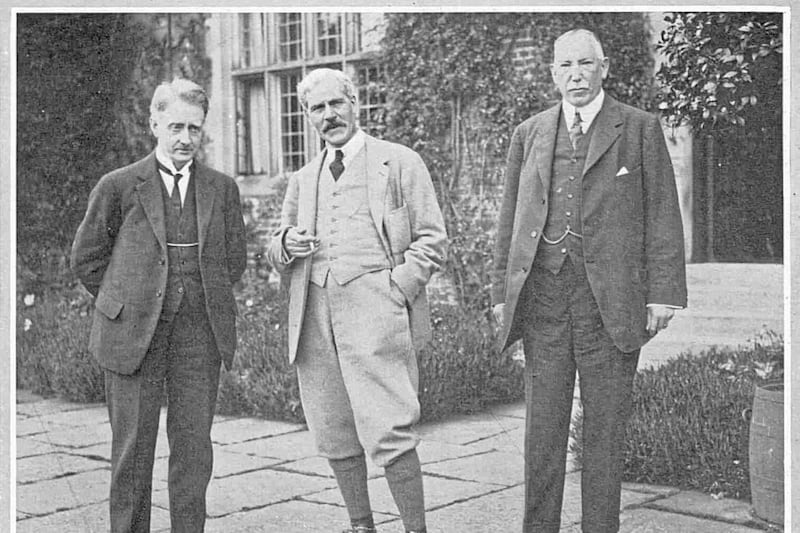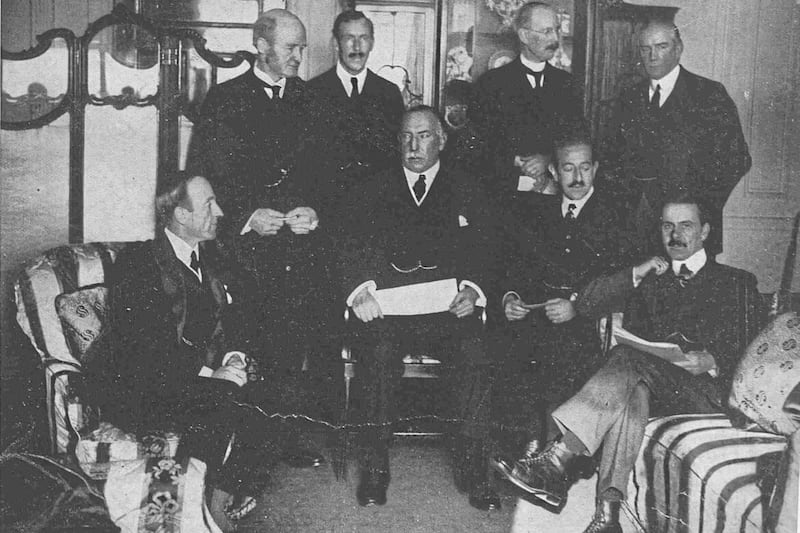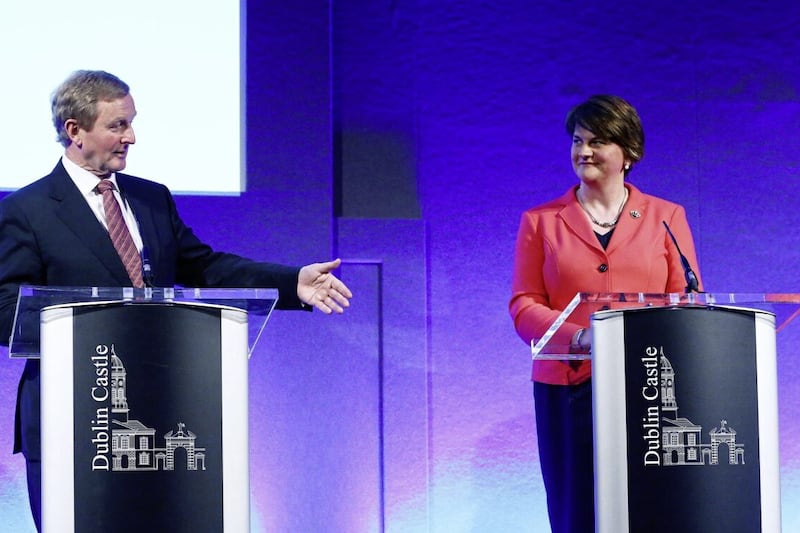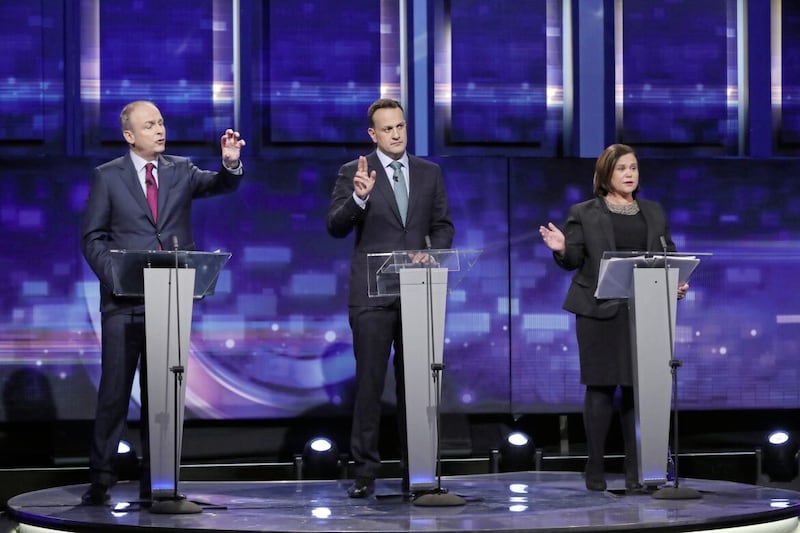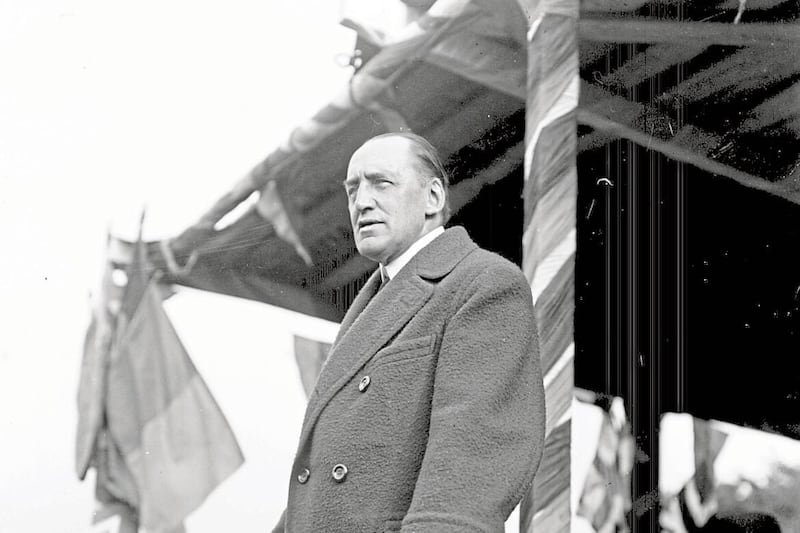FORMER DUP leader Peter Robinson intervened last week on the party's continued boycott of Stormont, criticising its strategic approach. He also claimed: “Nationalists and republicans look at what their objective is – each step they take they look to see does that take us closer to our objectives.”
It was not always thus. In many ways, roles have been reversed. At the time of partition, it was nationalists and republicans who made many strategic blunders in their approach to the north, just as the DUP has done since its initial support for Brexit in 2016.
As it became the main voice of Irish nationalism, Sinn Féin had no clear policy on how to deal with the unionist minority in the north-east of Ireland. Its leaders stuck steadfastly and naively to the view that the north-east would readily come into an all-Ireland parliament once Britain was removed from the island. Journalist and Irish Parliamentary Party member Stephen Gwynn claimed that "Sinn Féin in the north takes its orders from the south, which is more ignorant of Ulster than of Mesopotamia’.
Read more:
- Even Peter Robinson knows the game is up – the DUP needs to get back to Stormont
- Former DUP leader Peter Robinson warns unionists that not all demands will be met
- Peter Robinson can be Donaldson's lightning rod – Patricia Mac Bride
From 1921 to 1925, Sinn Féin and the parties that sprung from it following the Irish Civil War made many strategic mistakes that, instead of achieving their professed goal of uniting Ireland, had the opposite effect and helped to cement partition.
Sinn Féin floundered greatly by acceding to a vague and ambiguous Boundary Commission clause during the 1921 Anglo-Irish Treaty negotiations which was partly responsible for the border remaining unchanged subsequently.
The WT Cosgrave-led Irish Free State government’s decision to discontinue Michael Collins’s non-recognition and obstructionist policies towards Northern Ireland and to have direct relations with the northern government on the face of it seemed a plausible strategy, albeit a tad naïve, to attempt to unite the people of Ireland, north and south. However, the Free State government did little to foster any relations with its northern counterpart.
Instead, Cosgrave’s government drove a wedge between both Irish jurisdictions by insisting on bringing in fiscal autonomy for the Irish Free State in April 1923, which resulted in customs barriers and a hard land border between north and south. One reason for the introduction of customs barrier was to pressurise Northern Ireland into a united Ireland, a strategy, obvious then as it is now, that would have the opposite effect.
Cosgrave’s Cumann na nGaedheal government had little or no opposition within the Free State to its tactically inept policies towards the north. Republicans were as full of bluster and rhetoric as the government.
The Free State government appeared more fearful of being identified as “partitionist” by its political opponents in the Free State than in devising policies that could realistically help in ending partition. While many people criticised the continuance of a hard land border for negatively impacting on people’s lives and for copper-fastening partition, the Free State government was more inclined to heed the warnings of republican newspaper An Phoblacht who claimed the government was on the verge in 1926, so soon after its disastrous handling of the Boundary Commission, of its “next surrender to the British and the North” through the “abandonment of the customs barrier – the one lever the 26 counties has left to get the north in by economic pressure”. Customs barriers remained.
So inept was the south in its approach towards the north that a saying became popular in Belfast: “Nothing would do more to bring the north and south together than for the Dáil to take a holiday for a year”.
The Sinn Féin party today must, in some ways, be looking on with satisfaction from its back seat as the DUP have enforced a holiday on Stormont Assembly members for almost two years. The DUP is doing Sinn Féin’s work for it by undermining the union all by itself, with some help from hardline ideologues within unionism.
Read more:
- Cormac Moore: Was Eoin MacNeill to blame for Boundary Commission's 'disastrous' outcome?
- Partition: How the civil war solidified Northern Ireland's status
- Cormac Moore: Michael Collins ultimately failed northern nationalists despite passion for ending partition
Since 2016, the DUP has demonstrated an extraordinary capacity for strategic incompetence on an industrial scale.
Instead of Brexit strengthening the union as promoted by the DUP, it has done the opposite, perhaps fatally, as warned at the time and ever since.
After the 2017 UK general election, it squandered its position of holding the balance of power and foolishly discarded Theresa May’s Withdrawal Agreement, the deal to date that would have retained Northern Ireland’s trade position more aligned with the rest of the UK than the other deals since then. Instead, it nailed its colours to the ERG-mast, a more unreliable bunch of allies it would be hard to find.

Just as Sinn Féin was warned not to trust David Lloyd George in 1921, the DUP warmly embraced Boris Johnson who, as predicted by almost everyone else, ditched unionists at the first opportunity to get his “oven ready deal” over the line.
In a long list of mind-baffling decisions, the DUP abandoned Stormont in early 2022 over the Northern Ireland Protocol. Not only was the collapsing of Stormont detrimental to devolved government in Northern Ireland (which has a better chance of maintaining the union than direct rule) and led to significant negative consequences for people’s lives which have been sorely felt ever since, there were other avenues available to the DUP to express its opposition to the protocol. The DUP also needs regular reminding that it was the Brexit it supported which resulted in the need for a protocol in the first place.
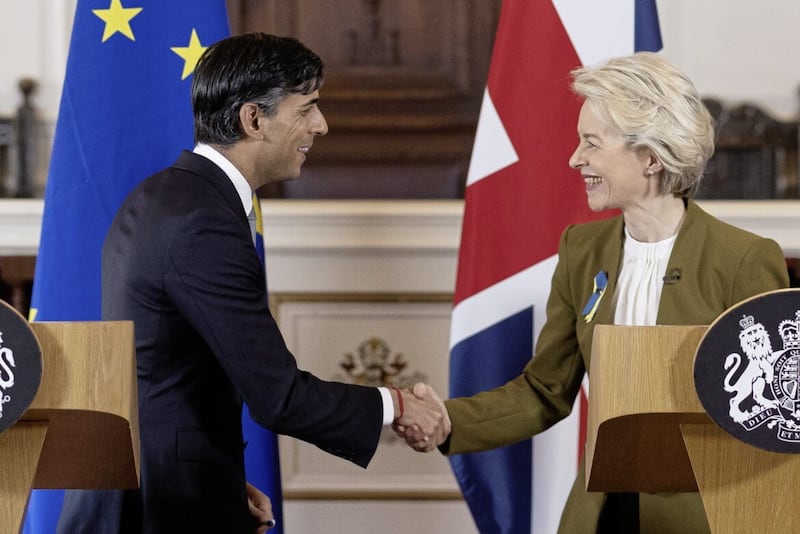
The DUP had a great opportunity to declare victory with the signing of the Windsor Framework in March of this year. It could credibly have claimed that it more than any other party was responsible for better trade arrangements between Northern Ireland and Britain through the framework. Instead, the DUP has opposed the framework and, despite some kites being flown in recent weeks, Stormont remains on hold at the time of writing.
Sinn Féin and the parties that grew from it in 1920s Ireland, instead of formulating strategies to end partition, in many ways aided the prolonging of it.
Likewise, instead of the DUP, over the last seven years, having helped to retain Northern Ireland’s place in the union, it has done the opposite and has contributed more than any nationalist party in recent times to help promote a united Ireland.



